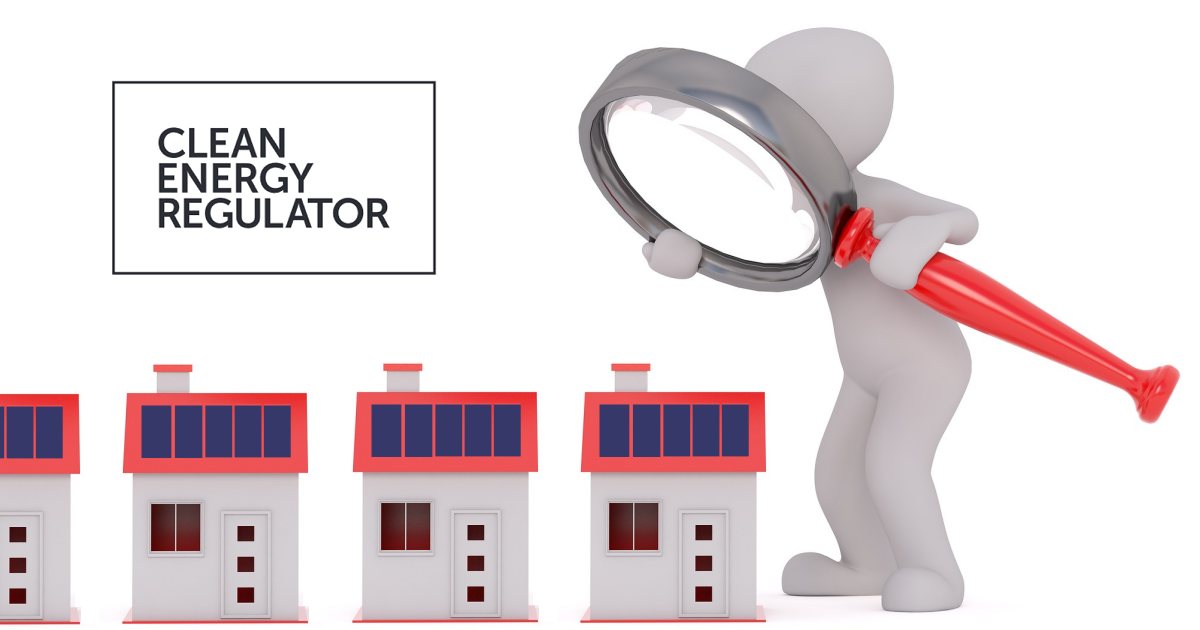
The agency tasked with the oversight of programs under Australia’s Renewable Energy Target has set out where it will focus its compliance and enforcement activities for the year ahead.
Among the programs under the Clean Energy Regulator’s watch is the Small-scale Renewable Energy Scheme (SRES). This is the mechanism enabling Australia’s popular national “solar rebate” that provides an up-front subsidy on residential and small commercial solar power system purchases.
On-Site Attendance A Focus
Accredited installers must have their boots on the ground supervising a solar installation when it commences, at the mid-point and at the point of testing and commissioning. This is a minimum requirement, not a suggestion for best practice.
Without appropriate attendance, the installation isn’t eligible for Small-scale Technology Certificates (STCs) – the virtual bits of paper the rebate is based on.
Unfortunately, there have been incidents where installers haven’t been on-site as required – and as previously warned, the Clean Energy Regulator is continuing to ramp up its detection efforts.
“The agency will monitor and investigate false claims using specific technology to verify claims, and take action against, installers who submit false claims,” states the Regulator. “Installers who submit false claims may have their accreditation cancelled or face civil proceedings or criminal prosecution. Investigations into false claims will also include the conduct of retailers or registered persons who are knowingly involved in the improper creation of certificates.”
An example of action taken: in late March, the Regulator entered into an enforceable undertaking with Bell Solar (which trades under the SunBoost brand), addressing improperly created STCs for solar systems that weren’t installed or supervised by the Clean Energy Council accredited installer listed on the compliance paperwork. 142 solar installations were involved. The installers were also referred to the Clean Energy Council and relevant state regulators for further action.
On somewhat a related note but separate to Regulator action, Bell Solar is also fighting to retain its electrical contractor licence in New South Wales.
Enduring Priorities
On certificate creation generally, one of the Regulator’s enduring priorities is action against those who make other false or misleading claims for STCs, which can include the suspension of registered persons from the RET, civil proceedings for civil penalty orders, or seeking prosecution.
Back in May this year, the Regular added another weapon against STC fraud to its arsenal, an online reporting tool that enables allegations of fraud to be lodged anonymously.
Just a note on where action is taken and STCs are found to be invalid: this doesn’t financially impact the owner of the system – i.e., the home owner doesn’t have to repay the rebate. The infringing party is the one that wears the cost (usually involving having to buy certificates) and any other penalty.

 RSS - Posts
RSS - Posts



Speak Your Mind